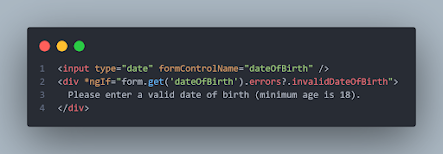Introduction:
In data processing and analysis, it's often necessary to convert JSON data to CSV format for easier manipulation and compatibility with various tools. While there are multiple libraries available for this task, handling nested JSON objects with varying fields can present a challenge. In this blog post, we'll explore how to convert nested JSON to CSV using Node.js, while dynamically handling fields that may vary between different JSON files.
Table of Contents:
1. Understanding the JSON Structure
2. Setting Up the Environment
3. Reading and Parsing the JSON File
4. Dynamic Field Determination
5. Converting JSON to CSV
6. Writing the CSV Output
7. Error Handling and Edge Cases
8. Conclusion and Next Steps
Section 1: Understanding the JSON Structure
In this section, I have provide an overview of the JSON structure we'll be working with. I will explain the hierarchy of objects and arrays, emphasizing nested objects and fields that may differ across files.
 |
| Example: Nested JSON |
Section 2: Setting Up the Environment
I will guide readers through the initial setup required for the code. This will include installing the necessary dependencies, such as the 'fs' and 'json2csv' modules, and importing them into the Node.js script.
Section 3: Reading and Parsing the JSON File
Here, I have demonstrated, how to read the JSON file using the 'fs' module in Node.js.
I will handle any potential errors that may occur during the file reading process and parse the file contents into a JavaScript object.
 |
| Parsing the JSON File |
Section 4: Dynamic Field Determination
In this section, I have explained the logic to dynamically determine the fields based on the first object in the JSON array. Here I handle nested objects and build an array of fields accordingly. This will involve iterating through the JSON data and checking for nested objects to include their properties as separate fields.
 |
Field Determination for the JSON Objects
|
Section 5: Converting JSON to CSV
Using the determined fields from the previous section, here's how to leverage the 'json2csv' library to convert the JSON array to CSV format. I have explained the installation process for the 'json2csv' library and provide code examples for converting the JSON data to CSV format.
 |
| Converting JSON to CSV |
Section 6: Writing the CSV Output
In this section, I will guide readers through writing the converted CSV data to a file using the fs module. I have handle potential errors that may occur during the file writing process and provide success messages upon successful creation of the CSV file.
 |
Write the CSV output
|
Section 7: Error Handling and Edge Cases
I will address potential errors and edge cases, such as handling empty JSON arrays, missing fields, or incorrect file paths. I will provide additional code snippets and explanations to handle these scenarios gracefully and ensure the script's robustness.
Handling Empty JSON Arrays
One potential edge case is when the JSON array is empty or contains no objects. To handle this scenario, we can check the length of the array before proceeding with the conversion and display an appropriate message to the user.
 |
| Example 1: Error Handling for empty JSON Arrays |
Error Handling for File Reading and Writing
When reading the JSON file or writing the CSV file, it's important to handle potential errors that may occur. We can wrap the file operations in try-catch blocks and display appropriate error messages to the user.
 |
| Example 2: Error Handling for File Reading and Writing |
Section 8: Conclusion and Next Steps
In this blog post, we've explored how to convert nested JSON to CSV format in Node.js while dynamically handling fields that may vary between different JSON files. We've covered each section of the process, from understanding the JSON structure to writing the CSV output, with an emphasis on error handling and edge cases.
By following this guide, you should now have a solid understanding of how to convert nested JSON to CSV in Node.js. You've learned how to read and parse JSON files, dynamically determine fields, convert JSON data to CSV using the 'json2csv' library, and handle potential errors along the way.
As a next step, you may consider further customization and enhancements based on your specific needs. Here are some suggestions for extending the functionality:
Customizing CSV Output: Explore the options provided by the 'json2csv' library to customize the CSV output format, such as specifying delimiters, headers, and field transformations.
Handling Different JSON Structures: Adapt the code to handle JSON files with different structures, such as varying levels of nesting, arrays within arrays, or objects with dynamic properties.
Error Logging and Handling: Implement a more comprehensive error logging and handling mechanism to capture and handle various types of errors that may occur during the conversion process.
Performance Optimization: Evaluate the performance of the script, especially when dealing with large JSON files, and consider optimizations such as asynchronous file reading and writing, streaming, or batching processing.
User Interface or Command-Line Tool: Wrap the functionality in a user-friendly interface or build a command-line tool to make it more accessible and convenient for users to convert JSON to CSV.
By exploring these possibilities and customizing the code to fit your specific use cases, you can enhance the JSON to CSV conversion process and make it even more powerful and efficient.
Remember to consult the official documentation of the libraries used, such as fs and 'json2csv', for additional options and features that may be relevant to your project.
Now it's time to put your knowledge into practice and start converting nested JSON to CSV with ease.
Summarize Code
 |
| Complete Code |
Happy coding!










Comments
Post a Comment